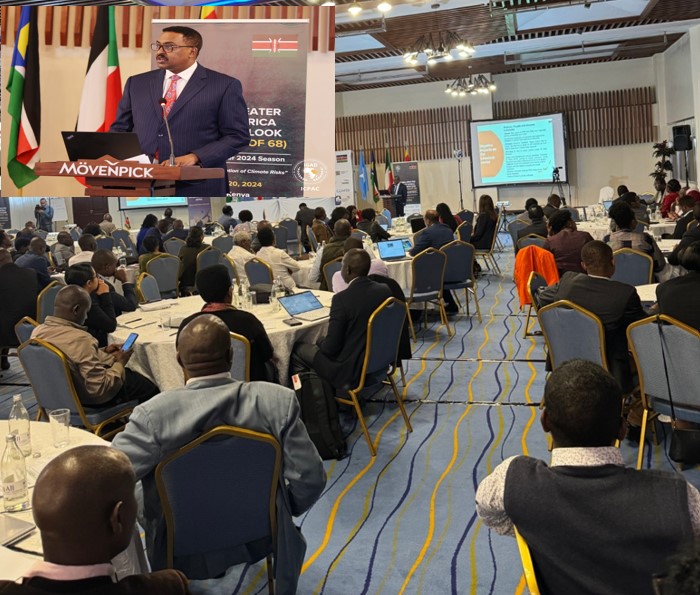By Khamis Cosmas Lokudu
A two-day regional climate outlook forum on the October to December 2024 season organized by the IGAD Climate Prediction Application Centre concluded on Tuesday afternoon in Nairobi.
The forum was held under the theme “Early Warning for Mitigation of Climate Risks.”
IGAD Executive Secretary Dr. Workneh Gebeyehu opened the 68th Greater Horn of Africa Climate Outlook Forum, emphasizing the urgent need to strengthen climate predictions and early warning systems throughout the IGAD region.
He called for unified action, advocating for the integration of modern technology and innovation with Indigenous knowledge to empower communities in their fight against climate change.
“Climate change and extreme weather events are no longer distant threats; they are immediate dangers facing our region,” Dr. Workneh stated.
He highlighted the significant impacts of climate change, including extreme weather events, rising sea levels, and increasing temperatures, which pose substantial risks to both local environments and global stability.
Dr. Workneh stressed that effective early warning systems are crucial for mitigating these risks.
According to a statement from the IGAD Climate Prediction and Applications Centre, the seasonal forecast for October to December 2024 predicts a critical rainfall period for the equatorial regions of the Greater Horn of Africa.
The forecast indicates a heightened likelihood of drier-than-normal conditions in the eastern parts of the region, notably affecting southern Ethiopia, much of Somalia, eastern Kenya, and parts of central and southern Tanzania, with the greatest deficits expected in southern Ethiopia and central/northern Somalia.
Conversely, the western areas, including southeastern South Sudan, northern Uganda, western and northwestern Kenya, northern Tanzania, southern Burundi, and parts of western Rwanda, are projected to receive above-normal rainfall.
This could bolster agricultural productivity, enhance pasture generation, and improve water resource availability.
Dr. Abdi Fidar, Officer-in-Charge at the IGAD Climate Prediction and Applications Centre, emphasized the significance of early warning information for regional planning and informed decision-making.
He warned that the predicted drier conditions in the Eastern Horn of Africa, combined with ongoing food insecurity, underscore the urgent need for coordinated action from relevant stakeholders to mitigate the potential impacts of climate change.




